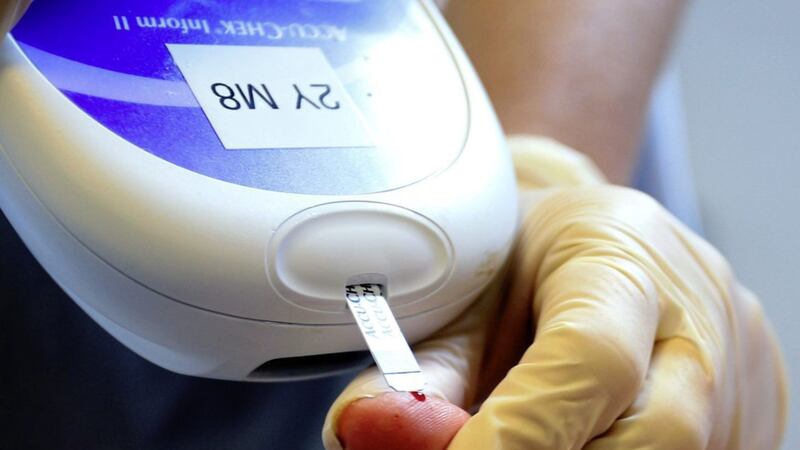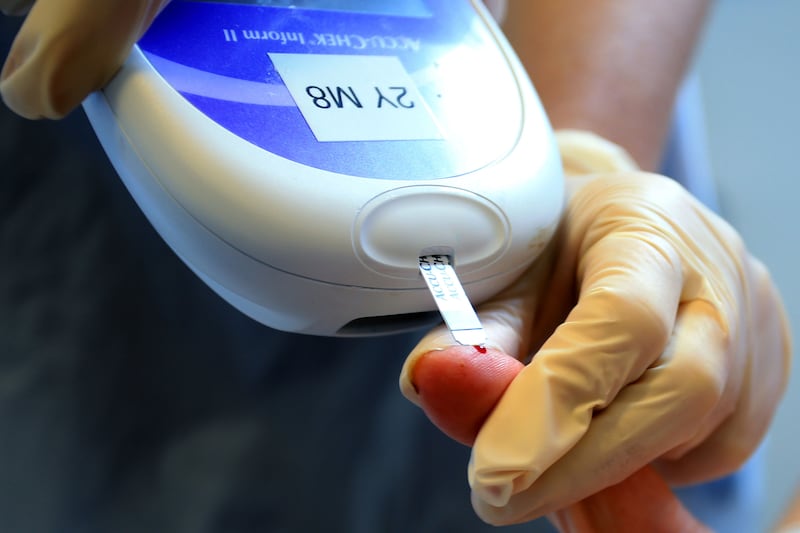MORE than half of people living with diabetes have experienced difficulty managing their condition during the pandemic, a survey has discovered.
Diabetes UK Northern Ireland also revealed a quarter of respondents had a consultation cancelled since the first surge last spring.
There are more than 104,000 people living with the illness in the north, which requires constant self-management as well as important health checks to reduce the risk of potentially devastating complications, including limb loss.
Anxiety and stress caused by Covid-19 were cited as reasons among the 53 per cent those struggling over the past 18 months.
The charity is today launching a report, Diabetes Is Serious, to ensure all types of the condition are on the health agenda over coming months.
People living with type 1 and type 2 diabetes were surveyed. Findings also revealed:
:: Almost 60 per cent had not undergone a vital check for their blood glucose levels since the beginning of the pandemic. The test is "imperative" for managing and reducing risk of diabetes-related complications
:: An estimated 376,000 people are at risk of developing type 2 diabetes
:: Poor mental health was experienced by 40 per cent of respondents
Tina McCrossan, national director with Diabetes UK Northern Ireland called on health minister Robin Swann to prioritise the needs of diabetic patients as part of the rebuilding of services.
The charity describe the condition as the "most devastating and fastest growing health crisis of our time", affecting more people than dementia and cancer combined.
"Our recent survey has told us that the pandemic has exacerbated the challenges that come with living with this relentless condition. We cannot ignore the prevalence of diabetes in Northern Ireland and the impact that self-managing this condition, especially during the pandemic, has had both physically and emotionally on people," Ms McCrossan said.
"Every cancelled appointment is a missed opportunity to diagnose this serious condition or have an early intervention to help stave off costly complications in all types of diabetes.
"The Department of Health and all associated bodies need to address and solve workforce issues as a matter of urgency. They also need to ensure diabetes pathways are developed and implemented to successfully deliver the best possible outcomes in diabetes care."
Ms McCrossan said a "robust" auditing process was urgently required to measure, benchmark and understand the full picture of diabetes care.








